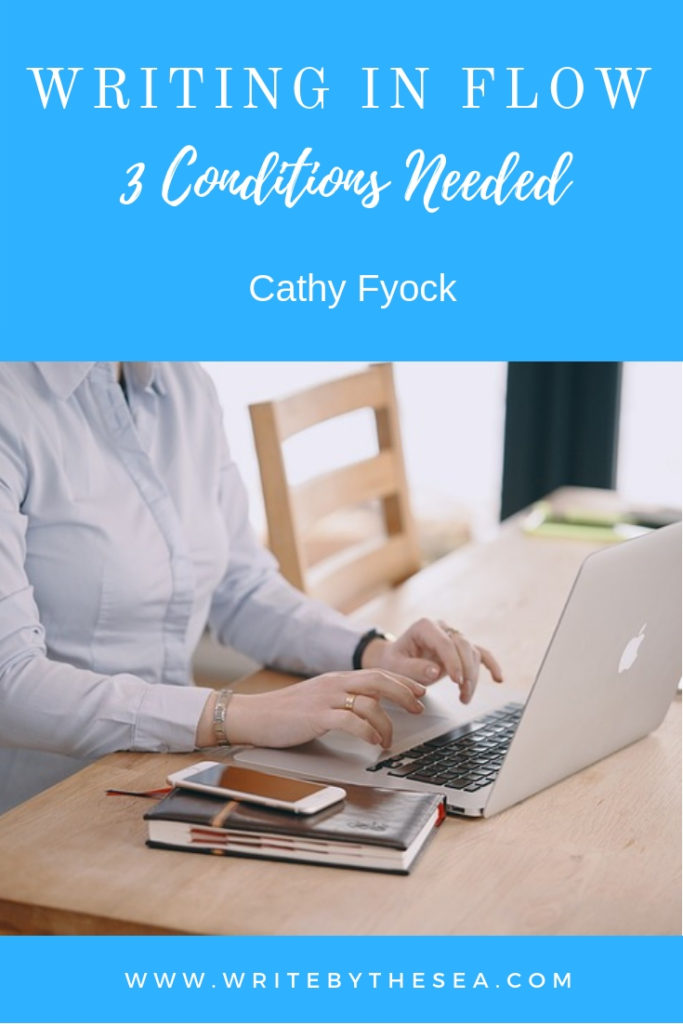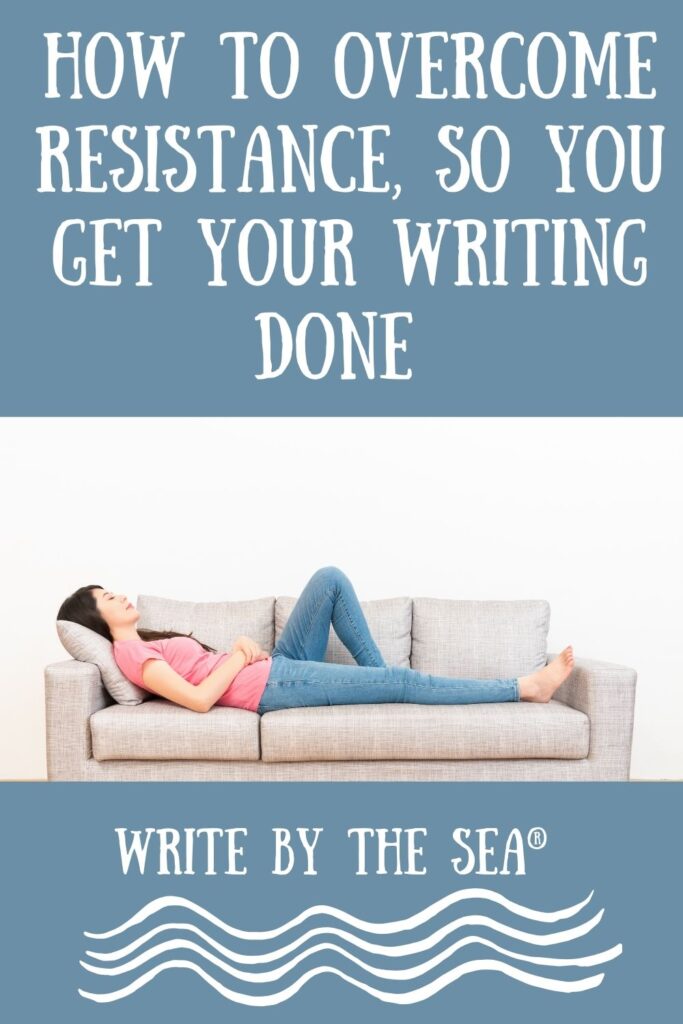Writing in Flow
Don’t you love it when the words are flowing effortlessly from your fingers to the keyboard?
Isn’t it bliss when you can see the book almost being created on its own?
Doesn’t every writer on the planet love this phenomenon we call “flow”?
Flow happens when you’re in the writing groove.
You’re not even thinking.
The words are writing themselves.
Time slips away.
You are at one with the writing.
Yes, that’s flow.

If you want to learn more about flow, check out some of the YouTube clips from the flow guru Csikszentmihalyi (don’t even try to pronounce it!).
He has studied this state of being and suggests that there are three conditions for flow:
(1) structure, (2) ability, and (3) feedback.
Let’s explore how we can tap into these three conditions to ensure they are present when we write.
Flow happens when you’re in the writing groove.
The words are writing themselves.
You are at one with the writing.
We can’t “let go” until we know where the boundaries are.
Structure
As writers, we need to have a sense of the parameters of our writing.
For example, I’ve found that writers can do amazing things when speedwriting or using writing prompts or sprints.
The rules for sprints are short and simple: no thinking, no editing, just writing.
The writer is given a few words or a picture to relate to their topic, and then they go.
I’ve found writers that can produce more than 100 words in a few short minutes when given this sort of structure—potentially over 1,000 words an hour if they could hold the pace.
Similarly, when working with authors, I’ve found that when they put a generic prompt like “work on book” on their calendars, they’re less likely to achieve significant results.
The highest productivity comes when authors can identify a specific task that they want to complete within a finite block of time.
So, for example, I wanted to write this post on flow, and I gave myself one hour to complete it.
While writing my draft, I’m about 20 minutes in, as of this moment. (As a note, I’d already done the research on Csikszentmihalyi and given a webinar on his three conditions for flow, so I was merely putting my thoughts from that program down on paper).
Ability
In order for writers to experience flow, we need to know that our ability matches the task at hand.
One of the ways that we increase our ability, and our belief in our ability, is to practice.
I’m a big believer in exercising your writing muscles, and in writing every day.
Refer to Chapters 27 and 29 on daily habits and exercising your writing muscles.
Feedback
Do you have an accountability partner or coach to give you the feedback and encouragement you need?
To be in the “flow,” you need to know you’re on the right track so you can let go of your worries and fear.
By having a writing partner to provide you with that feedback, you can silence the critical voice (in On Your Mark, I call this voice “The Bitch”) and not worry that you’ll embarrass yourself with your latest writing, or that you’ll have to forever hang your head in shame.
Having a partner to let you know when you’re on track allows you to have the freedom to just write.
Are you ready to get in the flow?
Ahh . . . what bliss when it happens!
Activity: What can you do to add structure, confidence in your ability, and positive feedback to your writing routine?
About Cathy Fyock
 Cathy Fyock is The Business Book Strategist and works with professionals and thought-leaders who want to write a book as a business development tool.
Cathy Fyock is The Business Book Strategist and works with professionals and thought-leaders who want to write a book as a business development tool.
She is the author of Blog2Book: Repurposing Content to Discover the Book You’ve Already Written.
Cathy can be reached at 502-445-6539 or at cathy@cathyfyock.com.
Note: This post may contain some affiliate links for your convenience (which means if you make a purchase after clicking a link I will earn a small commission but it won’t cost you a penny more)! Read my full disclosure and privacy policies...



